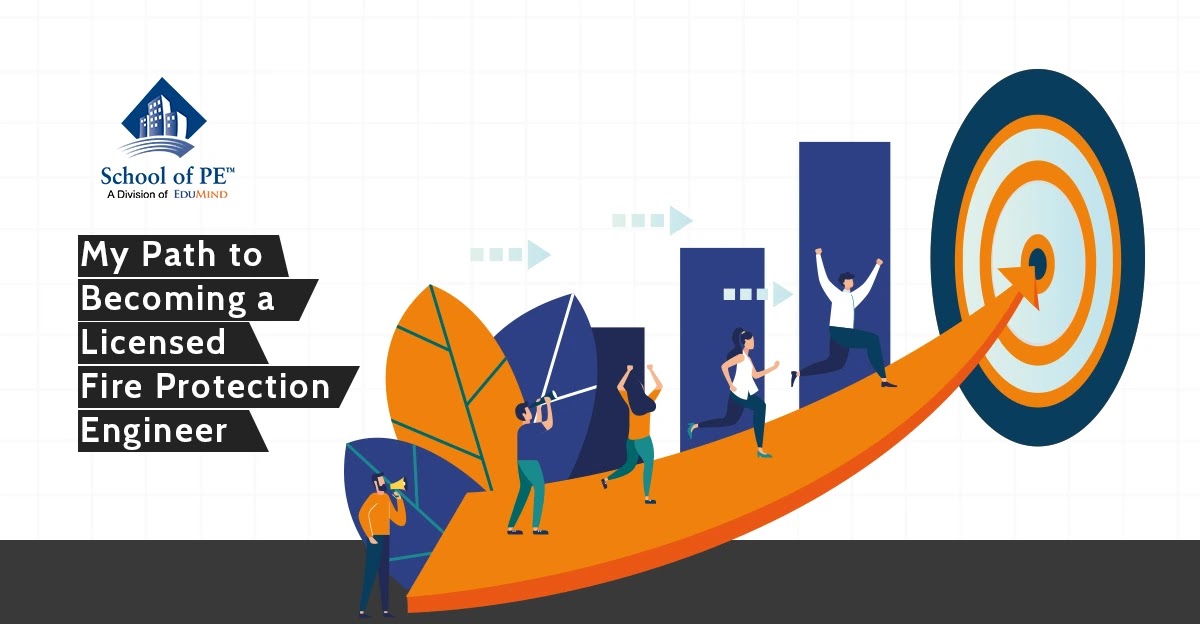Like many other fire protection engineers, my path was not entirely straightforward. I have had to navigate many jobs, licenses, and degrees on my journey, and I don't think I am done just yet! Today, I am going to describe my journey to becoming a licensed protection engineer with the hopes of exemplifying the many directions the path can take. Let's get started!
My original dream as a kid was to become an aeronautical engineer, but I changed my major to mechanical engineering after my sophomore year in college after seeing how unstable the aerospace industry was, as it was heavily dependent on funding from the government which would experience wild swings depending on the political winds. After I graduated, I found a decent government job, but the pay was disappointing, and the growth potential was even worse. A fellow coworker decided to get his professional engineering license in mechanical engineering and inspired me to do the same after he was able to leave for a better job. I spent about six months studying for the mechanical PE exam and was fortunately able to pass on the first try. I tried to leverage my new license to get a promotion, but none was forthcoming, so I began searching for a new position in earnest. I found a couple of mechanical type positions, but one job that really intrigued me was in a fire protection engineering research lab. Although I did not have much experience in the fire protection field, they were in dire need of a licensed engineer and decided to take a chance on me.
At this lab, I experienced the greatest growth of my career because I was introduced to no less than five senior fire inspectors and fire protection engineers who took me under their wings. They provided excellent theoretical, code, and hands-on training in the fire prevention field. They suggested that I should become a licensed fire protection engineer and even offered to pay for my exam and study materials. Of course, there was no way I could turn them down. When the time was right, I began studying for the fire protection PE exam and decided to take exam review classes. Although I was able to pass the mechanical PE exam on my own, I signed up for training for the fire protection exam to make it a little bit easier (as shown by School of PE pass rates, taking formal classes increases the chances of success). Along with classes, I self-studied for four months and was able to pass the fire protection engineering exam!
At this point, I thought I was done with testing, but I could not have been more wrong. I learned that there are additional certifications that would help increase my knowledge and resume, including International Code Council (ICC) exams, which I took to earn my fire inspector and fire plans examiner credentials. I then learned about an opportunity, again from a remarkable coworker, that there was an accredited and online fire protection engineer master's program at Cal Poly SLO. I signed up with a coworker and we were able to graduate from the program in two years while working full time. I was even able to convince him to walk at graduation with me!
With these certifications and degrees, I made a very tough decision to switch jobs for a better commute. I was able to land a job with the city I lived in and had the pleasure of working for one of the most respected fire marshals in the area. I learned how to work as an Authority Having Jurisdiction (AHJ) and manage large and politically sensitive projects while maintaining code standards. I am truly grateful for this opportunity, and I look forward to further increasing my knowledge of this profession. Perhaps a PhD is in the future!
Although I did not envision becoming a fire protection engineer at first, the path has been rewarding and I am glad I was able to make the career switch. I have grown so much as a professional and engineer, and I have also made a lot of great friends for life. I would encourage anyone to become a fire protection engineer if they are interested in the field.

No comments :
Post a Comment